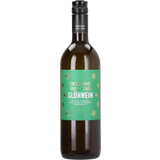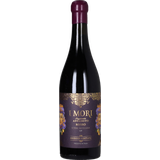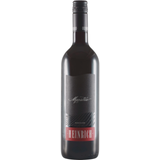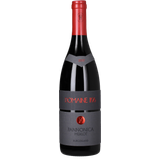What You Need To Know About Sulphites In Wine
What are sulphites and what are they used for?
Sulphites are salts of sulphurous acid that are used as preservatives in the food industry due to their antimicrobial and antioxidant effects. They are also known as sulphur or sulphur dioxide. Sulphites are added to dried fruit, potato products and wine in order to make them more durable.
Sulphites in wine
You can tell whether a wine contains added sulphites by the words "Contains sulphites" or "Contains sulphur dioxide". These words can be found on numerous wine labels. Since 2005, there has been an EU-wide labelling requirement for sulphites in wine (from a concentration of 10 mg/l), as they are considered an allergenic substance.

Why do we need sulphites?
During the ageing process, wines develop aromas. Great wines like Brunello or Barolo in particular have enormous storage potential. However, if no sulphites have been added to the wine, it can oxidise more quickly, changing its taste and developing defects. Sulphites prevent both oxidation and secondary fermentation in wines with residual sugar and ensure that the wine can develop the desired aromas.
Stages of sulphurisation
Sulphurisation can take place in several stages of winemaking. Large wine producers in particular sulphurise freshly-harvested grapes to prevent fermentation. However, if the grapes are picked by hand and are in good condition, this first sulphurisation is not necessary.
Sulphites are very helpful in stopping fermentation in wooden barrels or steel tanks. Here yeasts will continue to ferment the wine until the sugar has been processed and converted into alcohol. However, if the wine contains a certain amount of residual sweetness, sulphites can stop fermentation in a controlled manner. More sulphur can also be added before bottling to enable problem-free storage.
Between 90 and 400 mg/l sulphur dioxide can be added to wine, for example in the form of gas, aqueous solution or powder, depending on the type of wine and the residual sugar content. Red wine naturally contains more sulphites that protect it from oxidation. White and rosé wines therefore usually have more sulphites added. The more residual sugar the wine contains, the more sulphites it needs, since the higher the amount of sugar, the greater the risk of secondary fermentation. As a result, Trockenbeerenauslese and Eiswein contain the highest levels of sulphites.
Are there wines without sulphites?
First of all: No. ;-) Grape berries naturally contain a small amount of sulphites. And the yeasts that are used for fermentation also develop sulphur compounds. It follows that every wine contains very small amounts of natural sulphites (10-30 mg/l). So there are no wines that are completely sulphite-free, even if no artificial sulphur has been added. The concentration of natural sulphite is usually below 10 mg/l and is therefore not subject to labelling. Unsulphurised wine, to which no sulphites have been added, exist but the wine is not sulphur-free. The "Contains sulphites" note on the label indicates either artificially added sulphites or naturally occurring sulphites that have exceeded the value limit.
Are wines without sulphites better?
Conventionally produced wine contains sulphites up to the legal maximum amount (400 mg/l). The production of organic wines is based on values that are below the statutory maximum permitted. Biodynamic wines also fall below these values and use even less sulphur in winemaking. However, organic and biodynamic wines are being brought onto the market without added sulphites. Winegrowers who produce Natural Wines/Naked Wines/Vin Naturel aim to avoid additional sulphites.
However, whether a wine contains sulphites or not doesn't say anything about the quality. One advantage of unsulphurised wine is that it lasts much longer once the bottle has been opened.
Latest reviews
-
 4.4 (5)
4.4 (5)Domäne Wachau Wachauer Edel-Glühwein - white , 0,75 L
Bestseller- Just heat and enjoy
- Natural sugar from grape juice
- With cinnamon, star anise, cardamom and cloves
€ 7,99 (€ 10,65 / L)Delivery by January 08
-
-
 4.0 (2)
4.0 (2)Sibiliana Vini Rosso Leggeremente Appassito IGP 2023, 0,75 L
- 100% Syrah in a limited special edition
- Part of the grapes are dried beforehand
- Matured in barrique barrels
€ 14,99 (€ 19,99 / L)Delivery by January 08
-
-
 4.5 (2)
4.5 (2)Silvia Heinrich Maestra 2020, 0,75 L
- Red wine cuvee from Blaufränkisch, Merlot, Syrah
- Elegant, silky, almost feminine
- Matured in used wooden barrels
€ 21,99 (€ 29,32 / L)Sold out
-
-
 4.4 (31)
4.4 (31)Muster.Gamlitz Merlot Pannonica 2017, 0,75 L
- A strong, well-aged red
- Matured in barriques for 38 months
- The best wine from central Burgenland in Austria
€ 23,99 (€ 31,99 / L)Delivery by January 08
-
Magazine Articles:
Discover 9wines Online:
-
Austria: Free standard delivery from € 49,90
-
We operate in a
climate-conscious manner. -
Free
returns Secure payments
with SSL encryption technology







